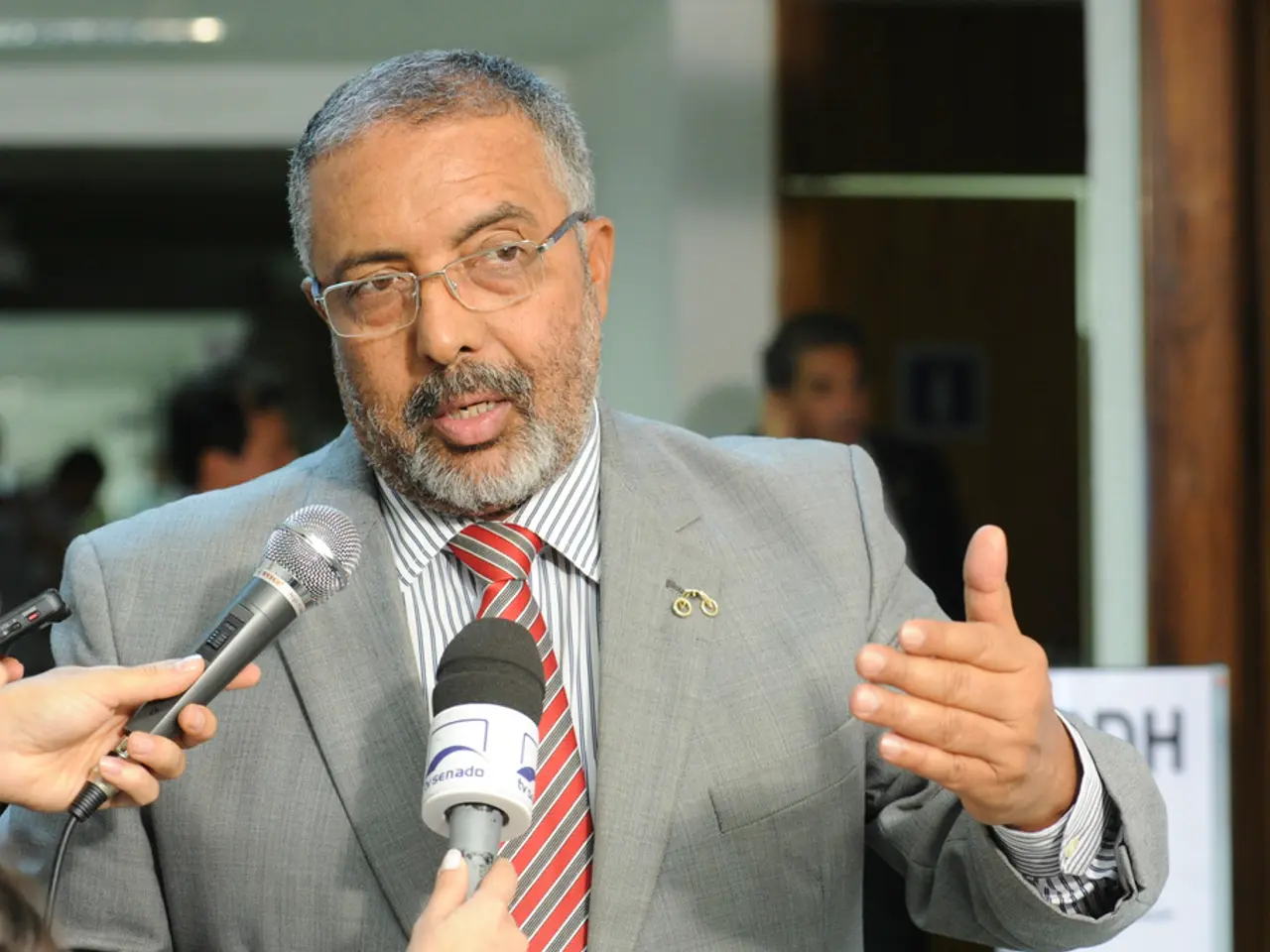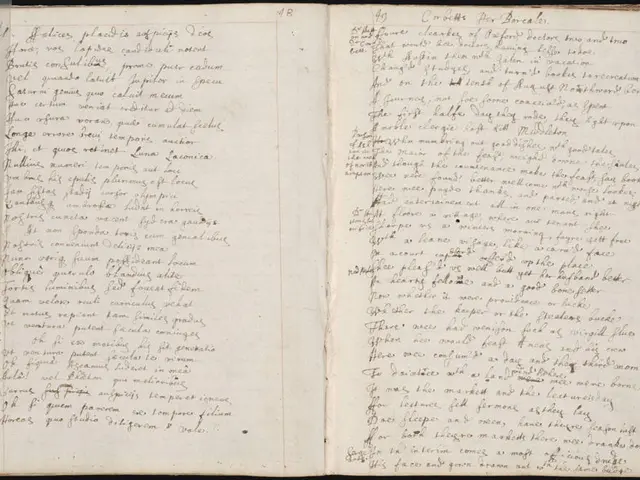FCC's Rosenworcel Issues Criticism Towards Incoming Trump Administration Regarding First Amendment Prior to Departure
In a stark contrast to recent developments, outgoing Federal Communications Commission (FCC) chair Jessica Rosenworcel has reaffirmed the traditional stance of the FCC in preserving press freedom and avoiding censorship risks.
Rosenworcel's stand comes amidst a wave of complaints against broadcast television stations, including WPVI Philadelphia, WCBS-TV New York, WNBC New York, and WTXF Philadelphia. These complaints, filed by various groups, allege biased coverage by the stations. However, Rosenworcel denies these complaints, emphasizing the risk of setting a dangerous precedent if the FCC were to engage in policing media bias.
The FCC, historically, has maintained a stance of not adjudicating complaints about perceived media bias by broadcasters. This principle is rooted in First Amendment protections and the FCC’s mandate to regulate technical aspects of broadcasting rather than content or editorial viewpoints.
Rosenworcel's statement makes clear that the FCC should not be the President's speech police or journalism's censor-in-chief. She emphasizes that broadcast television stations remain a vital source of local and national news, even in an era of diverse information sources. By denying these complaints, Rosenworcel aims to prevent a dangerous precedent from being set.
The complaints involve requests to penalize television stations for the substance of presidential debates, the release of news interview transcripts, equal time for programming involving political candidates, and the character shortcomings of corporate ownership.
Rosenworcel's stance contrasts with the more interventionist moves seen in 2025 FCC actions, which have blurred the boundaries between the FCC's regulatory role and political demands regarding media content and bias allegations. This shift, under Chair Brendan Carr and during the Trump administration, has raised alarms about political interference in media and the potential for the FCC to enable executive pressure to control broadcast content indirectly by tying it to regulatory decisions like merger approvals.
Notably, the Center for American Rights filed three of the four complaints, accusing WPVI of "news distortion" during the presidential debate, WCBS of biased editing, and WNBC of biased coverage during Harris's "Saturday Night Live" appearance. The Media and Democracy Project petitioned the FCC to deny the renewal of Fox-owned WTXF-TV due to Fox News Channel's defamation settlement with Dominion Voting Systems.
Rosenworcel's statement emphasizes the importance of the First Amendment and the FCC's duty to respect it, especially in the current political climate. She mentions historical instances where government leaders have attempted to restrict freedom of speech or target news organizations, such as President John Adams' law against malicious statements about the federal government and President Nixon's attempt to revoke television station licenses during the Watergate investigation.
At a Congressional hearing, Carr was noncommittal when asked whether he would have pulled WPVI's license due to perceived bias during the ABC News-sponsored presidential debate. The incoming Trump administration, with Carr as a likely successor to Rosenworcel, has been criticized by Rosenworcel for its approach to the First Amendment.
In short, Rosenworcel's actions and statements represent the FCC’s traditional legal and constitutional position against policing media bias, emphasizing freedom of speech and editorial independence, while recent events highlight a rare and controversial departure from that principle with significant implications for media freedom and regulatory integrity.
[1] New York Times Article on FCC's Paramount-Skydance Decision [2] Washington Post Article on FCC's Paramount-Skydance Decision [3] Variety Article on FCC's Paramount-Skydance Decision
Read also:
- Court petitions to reverse established decision on same-sex marriage legalization
- Trump's enforcement actions in Washington D.C.: Insights from the political arena
- Chinese Ambassador issues stern message to India regarding Trump's tariffs in midst of escalating trade feuds
- Unveiling the potential template for authoritarian leaders in Togo's controversial constitutional switchover.








